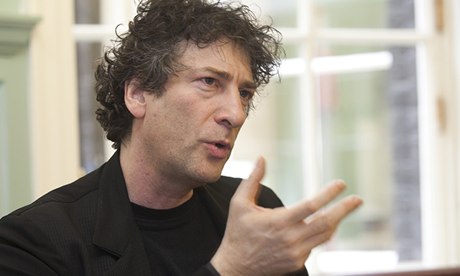
From
LIFEHACK:
November 22 by Lana Winter-Hébert in Leisure, Lifestyle | 8.6K Shares
Languages are living things that shift and evolve over time. If you look at the history of the English language, from Anglo Saxon through the Great Vowel Shift to what we consider Standard English today, you’ll notice that it has undergone some spectacular changes over the centuries. Some basic words have stuck around through the ages, like “father”, “house”, “egg”, “boat” and so on, but just as new words developed over time, other words were discarded along the way.
Many others from Shakespeare’s time through to the early 20th century have fallen out of common usage, and we are undoubtedly the poorer for it. Here are 20 words that could only serve to add a bit more colour to our daily lives if they happened to come back into regular use.
1. Bunbury
noun
An imaginary person whose name is used as an excuse to some purpose, especially to visit a place.
“Auntie Jane the cottage dweller” was my go-to bunbury whenever I wanted to take a day off to go play in the forest.
2. Scurrilous
adjective
The description of something said or done unfairly to make people have a bad opinion of someone.
Mrs. Mumford had spread rather scurrilous gossip about Miss Violet in the hope of tarnishing her reputation. Honestly, who would do that sort of thing with a llama?
3. Gallimaufry
noun
A hodge-podge, or jumbled medley (can also refer to an edible dish).
Lydia’s casserole was a veritable gallimaufry of beans, raisins, cauliflower, sausage, cheap wine, and cabbage. Guests never asked for second helpings.
4. Thrice
adverb
Three times.
I’ve told you twice not to eat raw pork with mustard or you’ll get sick—don’t make me say it thrice!
5. Blithering
adjective
Talking utterly and completely foolishly, OR used to describe a foolish person.
The blithering idiot was blithering on about something or other, but I tuned him out.
6. Pluviophile
noun
A person who takes great joy and comfort in rainy days.
Your average pluviophile will be in utter glory when thunder roils, as she can curl up with blankets and books while rain pours down outside.
7. Librocubularist
noun
One who reads in bed.
When you’re married to a librocubularist, you can rest assured that you’ll have to compete with a stack of books for nighttime attention.
8. Febricula
noun
A slight and transient fever.
Attending the opening of Twilight’s 17th sequel gave Arabella a mild febricula, but the air-conditioned cinema interior cleared it up quickly.
9. Starrify
verb
To decorate with stars.
The student council would starrify the high school gym every year in preparation for the homecoming dance.
10. Sophronize
verb
To imbue with sound moral principles or self-control.
It’s vital that parents sophronize children, not just expect them to behave properly of their own volition—you know what havoc they’d wreak.
11. Mullock
noun
Rubbish, nonsense, or waste matter.
I don’t know what kind of mullock you’re gibbering on about today, but you really need to stop reading those conspiracy magazines.
12. Uglyography
noun
Poor handwriting, and bad spelling.
His uglyography was so heinous that his essay was used as kindling, but the flames extinguished themselves rather than be tainted by association.
13. Namelings
plural noun
Those bearing the same name.
There were six boys named Jason in that particular class, prompting the teacher to address them all by their last names. When faced with namelings who both answered to “Jason Birch”, she called them “Birch” and “tree”, respectively.
14. Ultracrepidarianism
noun
The habit of giving opinions and advice on matters outside of one’s knowledge.
Child-free people who try to give parenting advice are often guilty of the worst kind of ultracrepidarianism.
15. Pannychis
noun
An all-night feast or ceremony.
Edmund took another energy drink, hoping that its caffeine content would help him survive this raucous pannychis.
16. Guttle
verb
To gobble greedily; to cram food into one’s gut.
The dinner guests watched in horror as Lord Penderquist guttled an entire roasted boar into his maw.
17. Snollyguster
noun
A person, especially a politician, who is guided by personal advantage rather than by consistent, respectable principles.
The snollyguster who won the mayoral election just lines his pockets with cash to support his drug habit.
18. Welkin
noun
The upper sky; “vault” of heaven.
Icarus would have passed through the welkin on his legendary flight, but we all know how that turned out for him.
19. Barbigerous
adjective
Characterized by having a beard.
I had wanted to compliment him on his fiancee’s beauty, but her barbigerous aspect was so dominant that I had to remain silent.
20. Eventide
noun
The end of the day, just as evening approaches.
Moonflowers only bloom at eventide, opening their petals as the sun slips below the horizon.
As a special little addition, we’ll also reach into the annals of history for a fun little Anglo-Saxon term that we can all relate to:
Uhtceare
verb
To lie awake in the period just before dawn because you’re worrying too much to be able to sleep.
How many of these do you often use? If You’ve Never Used These English Idioms, You’re Probably Not a Native English Speaker
Featured photo credit: Ancient letter and pen













